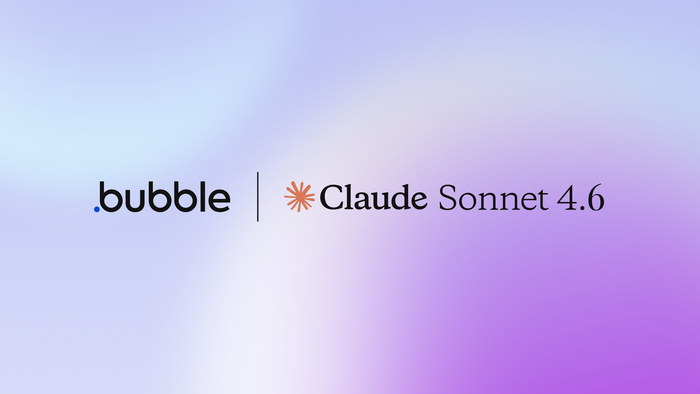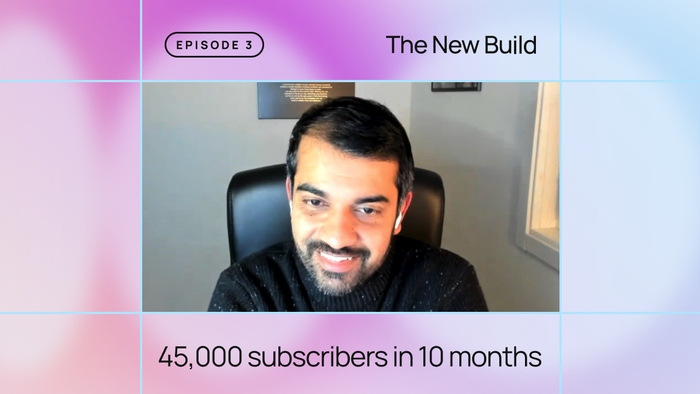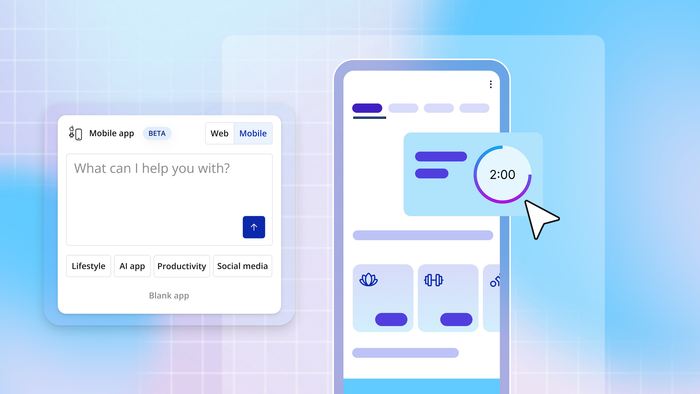Mary Fox is the Co-founder and CEO of Marlow, a startup that partners with individuals who are ready to take the lead on their career trajectory. Her background is in Product Marketing with a Masters from the London School of Economics.
What is the inspiration for Marlow?
We started Marlow about a year and a half ago ago in July 2017. Too many people guess their way through situations in their professional life. Our goal was, and still is, to remove that guesswork and replace it with helpful guidance, tools and frameworks. A big part of what we do is to help people get from where they are right now to where they want to be in 6 to 12 months. Often that involves developing skills like communication, time management, people management, or productivity. Traditionally, executive coaching has been for the C-suite, where an executive coach partnered with a CEO or COO to identify blind spots, work on self-awareness, communication, and other essential skills to become a stronger leader within their organization. A good executive coach would have 30 years of experience, often including tenure as a member of the executive team. There are a lot of extraordinary executive coaches with this type of experience. And, rightfully, they’re incredibly expensive, often charging between $200–$800 per hour. We are certainly not knocking them — they’re the pioneers here — but their model isn’t scalable to team members and leaders outside of the executive team.
That’s where Marlow comes in. Our professional development platform offers coaching and resources to help individuals make progress toward their goals in a more effective manner. Marlow’s platform includes a 1:1 messaging portal, bi-weekly phone calls, and interactive activities. A lot of people think they know what coaching is and then they describe more of an advisory or mentorship type interaction. We view coaching as being drastically different from consulting and advising because we are not saying ‘here is what you need to do’ but instead we ask ‘what is it you want to accomplish?’ Professionals often have an idea of what they want to achieve, but they may not see a clear path for how to get there. At Marlow, all of our coaches work exclusively with our members and are trained in Marlow’s coaching model. Our model is rooted in a combination of Socratic questioning and design thinking. We took the best parts of traditional executive coaching and turned it into a format that is more accessible for today’s professionals.
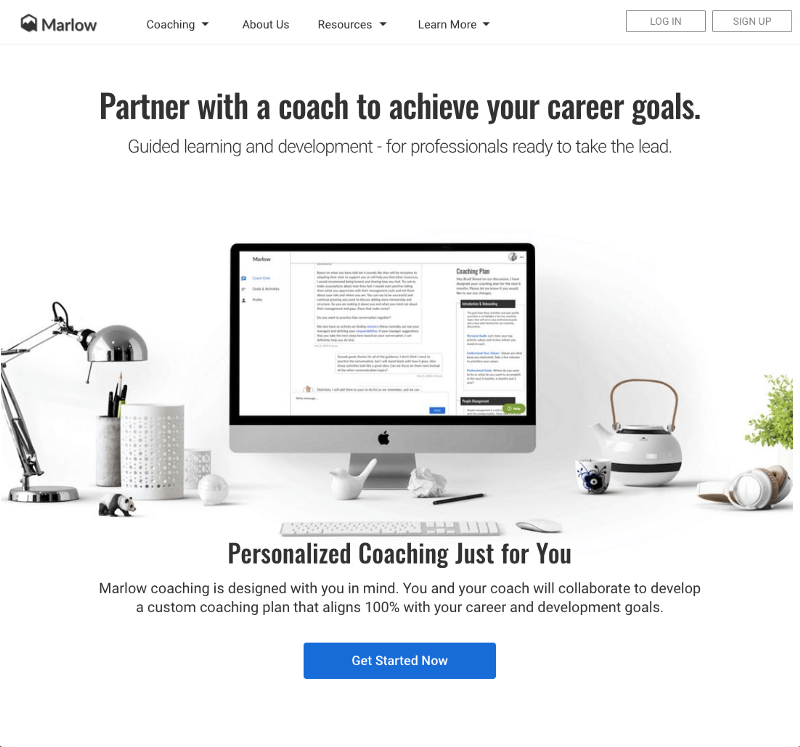
How does Socratic questioning and design thinking work in practice with clients?
Socratic questioning, more academically referred to as the Socratic Method, is at the core of many coaching models. The idea is to have a back and forth discussion where the coach asks questions to help the client think about their situation in a way that they may not have considered. For example, our client might say something like ‘I’m not a good public speaker’. We’ll ask them ‘What caused you to say that you’re not a good public speaker?’ They’ll say ‘Because I’m uncomfortable’. At that moment you’re starting to get to a point that leads to tangible action. In this case, we would continue to dig deeper and probably help them think that through and break it down into smaller pieces in a logical way.
We took quite a bit of inspiration from IDEO which is a human-centered design company. They use the design thinking process at the core of what they do. The idea is to identify tons of ways to frame a problem, then come up with experiments to solve it in a more iterative way. Our members might come to us with an issue like how to give feedback to coworkers. We partner with them to think through the information they may need to gather to move forward. For example, identifying the objective of delivering the feedback and thinking through ways their coworker may best receive that feedback. From here we’re helping them be more thoughtful in how they approach feedback, but they’ll still need to experiment until they find the way that is good for their work style and personality.
How did you translate personalized services typically done offline into a web app that keeps that connection between coach and client?
When I came up with the idea for Marlow, I knew I had to do it. I was losing sleep on how I would pay engineers to build this. I couldn’t quit my job yet because I needed to be able to fund Marlow. I had 4 months of savings but that could either pay my salary or the salary of a very low-paid engineer. I was frozen and I thought ‘there’s got to be something that is much more interactive than WordPress, Wix or Weebly’ and then I stumbled on Bubble. I realized within a few tutorials that I could build chat and workflows. I noticed I could also connect to external APIs like Stripe, Sendgrid, Mixpanel, and Mailchimp. Bubble didn’t have any other competitors that could match this level of dynamic design and function. I spent the first week seeing what’s possible and then launched to beta testers by Week 3 in order to get feedback. The next iteration took me 3 weeks more to design. It was in this iteration that we attracted our first paying users. This is the beauty of Bubble — I was able to iterate on design and product. As a result, we’ve become a better business and we know we can figure out pretty much any feature we need.
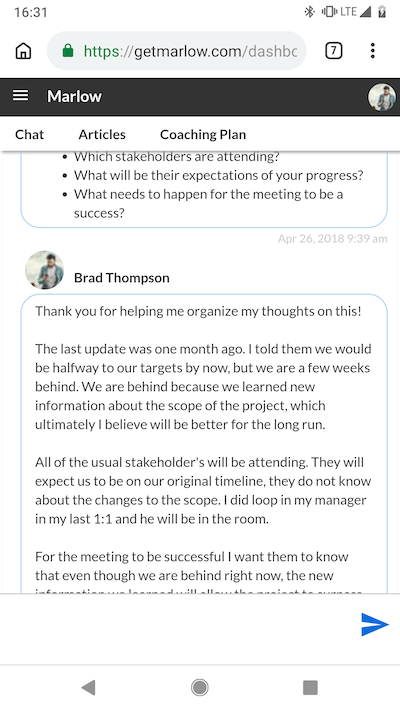
The interaction between Marlow members and their coach is split between our web app and phone or video calls. We also have activities that are completed in the app. Bubble gave me the ability to provide my coaches with a place to log call notes, share worksheets on the platform, and send notifications to coaches. As a result of these efficiencies, coaches can coach more people and along with members access all their organized materials easily. For a developer with 10 years experience, this is easy but we built this without code.
What are your top business priorities and exciting releases over the next few months?
In the next few months, we are iterating on activities to make them more engaging and fun for our members. From a market standpoint, our competitors are building marketplaces. Their approach is to make it easier to find a coach. We are placing a different bet. Our strategy is focused on enhancing the coaching experience so it is more accessible and personalized. All of Marlow’s coaches work for us and coach exclusively Marlow members. They are experienced professionals trained in our coaching philosophy, and they use our platform and and curriculum to ensure that every member gets a great experience. Bubble is helping us build the machine that enables us to provide personalized coaching at scale. We are learning what works for clients, and gaining a better understanding of which approach or resource works best for each client in a particular type of situation. We can then focus on those resources to make them even more productive. On the backend, we are supporting coaches by making processes efficient so they focus on coaching rather than administrative tasks.
We partner with companies to roll Marlow out to their team members. Our contact in an organization is often the Head of HR, Head of Learning and Development, or the senior leader in a department like Sales, Marketing or Product. These folks need support communicating the ROI of partnering with Marlow to their senior leaders — and that’s something we take very seriously. We’re building a company portal with a fully interactive experience that delivers high-level, anonymous insights about the team. Employees who grow their professional skills and find a better balance between work and personal life should ultimately lead to a positive benefit for the company. Our biggest market is US companies and we have members in other countries, like Japan, Spain and UK. We’re excited to expand from here. The topics covered with our international members are very similar to what our members based in the U.S. cover. But we’re also able to personalize the entire experience which gives us a lot of flexibility to adapt for different cultures.
Build for as long as you want on the Free plan. Only upgrade when you're ready to launch.
Join Bubble

